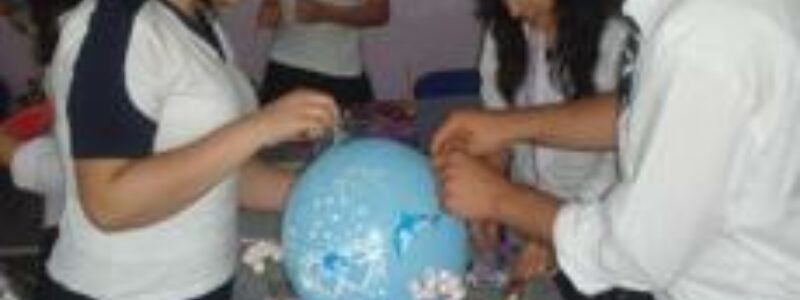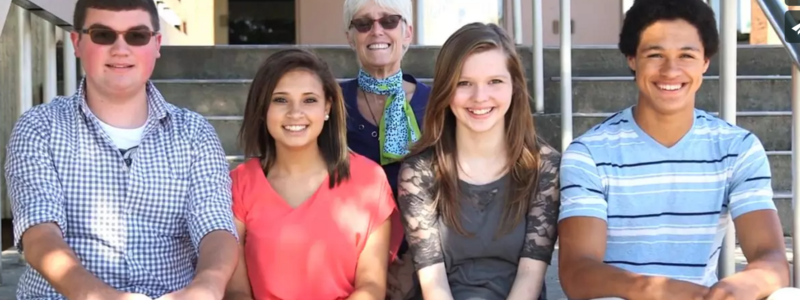My Identity, Your Identity

Project Name: My Identity, Your Identity
Age Level:
5-11 (Primary)
Subject Areas:
Social Studies, English & Language Arts, English as a Foreign Language
Summary: Young students discover their cultural identity as they learn with and about others in the world. (COMMON CORE STATE STANDARDS ALIGNED)
My Identity, Your Identity
This plan is for the My Identity, Your Identity project
Teacher goals
- To learn how to navigate iEARN website and integrate technology and global collaboration in my classroom.
- To research traditions native to my students’ cultural backgrounds as well as those of the students we will be collaborating with.
- To visit and learn about local monuments and community landmarks.
Student Goals
- Students will be able to develop their expressive language across the modalities of: listening, speaking, reading, and writing.
- Students will research, record, and share traditional customs native to their cultural backgrounds and those of other countries.
- Students will visit, learn about, and describe important historical sites and share images of them through the integration of technology and personal art creations.
- Students will experience the value of establishing connections with children across the world and validate different ideas, traditions, and ways of life.
Differentiated Instruction
Students participating in this project will be English Language Learners with varying levels of English language proficiency. Lessons will include activities for students at the beginning, intermediate, and advanced level of language development. Those at the beginning level will participate in activities with a focus on listening and speaking skills through: read aloud, accountable talk sessions, and cooperative group tasks. They will also participate in activities to develop descriptive writing pieces using basic sentence structures in English.
Students at the intermediate and advanced levels may require less scaffolding in the areas of listening and speaking, but will participate in tasks that require the integration of more in depth reading and writing skills. Examples of activities will include: researching and interpreting resource materials, letter writing, and interviews.
Process Learning
Students will learn how to communicate, both orally and in written form. They will also learn how to express themselves across the writing domains of: informative, descriptive, and narrative writing (ESL/English Language Arts). They will participate in Social Studies activities through researching their communities, traditions, and important landmarks.
Aesthetic: Students will create illustrations depicting celebrations native to their cultures. They will also learn about and share musical traditions included in native festivities.
Social: Students will learn to communicate with fellow children from different parts of the world. They will learn the importance of validating their own beliefs and traditions and those of others. Students will also learn how to interact and address others who may be sources of valuable information (family and or community members) through proper and appropriate questioning techniques and responses.
Physical: This project will require that students participate in actual visits a cultural landmark. In turn, students will gain a sense of appreciation for their community and the importance of preserving these resources.
Cognitive: Students will have to select and organize information. They will engage in research and use of resources to create oral, written, artistic presentations.
Language: This project will include written and oral activities across the four language modalities of: listening, speaking, reading, and writing.
Affective: The essence of this project is to help students learn to view the world around them with a new perspective. It will be an experience that will guide them in understanding their place in the world and the importance of respecting and celebrating our differences.
Curriculum Standards
NYS Learning Standards
ESL Elementary Standards: Grades 2 to 4
Standards 1,3.4,and 5:
Students will listen, speak, read, and write in English for:
Standard 1: information and understanding
Standard 3: critical analysis and evaluation
Standard 4: social interaction
Standard 5: demonstrate cross-cultural knowledge and understanding
NYS Social Studies Standards 1, 2, and 3:
Standard 1: History of the United States and New York
Standard 2: World History
Standard 3: Geography
NYS Arts Standards 1, 2, and 4:
Standard 1: Creating, Performing, and Participating in the Arts
Standard 2: Knowing and Using Arts Materials and Resources
Standard 4: Understanding the Cultural Dimensions and Contributions of the Arts
NYS Mathematics, Science, and Technology Education Standards 2 and 5:
Standard 2: Information Systems
Standard 5: Technology
Common Core State Standards
- Reading 1: Read closely to determine what the text says explicitly and to make logical inferences from it; cite specific textual evidence when writing or speaking to support conclusions drawn from the text.
- Reading 8: Delineate and evaluate the argument and specific claims in a text, including the validity of the reasoning as well as the relevance and sufficiency of the evidence.
- Writing 2: Write informative/explanatory texts to examine and convey complex ideas and information clearly and accurately through the effective selection, organization, and analysis of content.
- Writing 3: Write narratives to develop real or imagined experiences or events using effective technique, well-chosen details, and well-structured event sequences.
- Writing 6: Use technology, including the Internet, to produce and publish writing and to interact and collaborate with others.
- Speaking and Listening 2: Integrate and evaluate information presented in diverse media and formats, including visually, quantitatively, and orally.
- Speaking and Listening 5: Make strategic use of digital media and visual displays of data to express information and enhance understanding of presentations.
Timetable
Our goal is to participate in our chosen project for 3 to 4 weeks. We will designate two periods per week during which we will access and respond to emails. We will also include an additional period per week during which we will participate in lessons across content areas, all related to our project, i.e.: journal writing, creating art work, taking photographs, organizing video presentations. We will also designate one day for a class trip to a cultural institution (museum) to be shared on line with our collaborating class through photos and writing pieces.
Specific lessons
Introduction
We will begin our project by accessing iEARN and viewing the video clip in which students define iEARN and explain their participation and views on global collaboration. My students are learning how to use online resources to conduct research. They have worked on non-fiction writing pieces based on information they’ve gathered about science and social studies topics. "My Identity, Your Identity" is a project that will extend throughout the subjects of social studies, literacy (communicating in both oral and written form), technology, and art.
I hope to engage my students by having them learn about themselves first. I will ask my students to complete an assignment with the help of their families. Each student will be asked to bring in a picture of his/her family (student must appear in photo). They will conduct a brief interview of their parents to obtain information about their family's cultural background, countries of origin, home languages, and traditions. Once we have determined our countries of origin, we will decorate flags of our respective countries. Photos and flags will be compiled and used to create a class quilt.
I felt the need to develop the above assignment because, after an informal discussion about iEARN and our future involvement in one of its projects, I discovered that some of my students were not able to provide many details about their cultural background and traditions. Providing them with opportunities to learn about themselves will increase their background knowledge & enrich their experience and participation in this project.
Productivity of work
Students will need to interview immediate family members in order to learn about their family’s country of origin, predominant home language, and important celebrations and traditions. They will also need to be able to recognize their native country’s flag. Students will also conduct research on these topics for the countries we will be collaborating with.
Students will conduct independent research at home and work in partnerships in the classroom. Intermediate and advanced ESL students will work in teams. Two newly arrived students at the early emergent level of English language proficiency will be paired off with intermediate students sharing their same home language (Spanish and Urdu). My new students will benefit from opportunities to work in small group settings with fellow classmates who can make information and directions more comprehensible. They often feel intimated by whole class group activities and are often unwilling to participate. They are more comfortable communicating on a one-to-one basis and their more advanced peers can model English language conventions for them.
Students will be individually responsible for conducting interviews and obtaining information about their respective countries by a certain date (late April). Classroom time will be devoted to conducting research in our school library by locating non-fiction texts. Students will also have classroom time to conduct online research. Students will be in charge of gathering materials (laptops) and accessing secure websites. I will survey and monitor to ensure that students are following proper internet use guidelines and that they remain on task. I will also conduct individual conferences. We will designate two periods per week during which we will access and respond to emails.
Assessment of student work
My goal in assessing my students is to gain insight into the progress they've made while acquiring English as a second language. Although I will assess their participation and ability to demonstrate basic knowledge of technology, particularly during the implementation phase of the project, my focus is to be able to determine if they are at the beginner, intermediate, or advanced level in the listening, speaking, reading, and writing, of English. Therefore, I need to carefully plan my lessons and activities to ensure that they are aligned with the skills I plan to assess. It would be far too complicated to expect to measure all four skills during every activity because it is not uncommon for students to demonstrate varying levels of proficiency in each of the language skills. Some may be at the intermediate or advanced level in listening and speaking, but still be beginners in reading and writing.
Assessment during the Introduction Stage:
This stage will include activities in whole class, cooperative partnerships, and individual conference settings, during which students will be asked to communicate orally. Students will be informed of the type of information to include and will be assessed in their ability to understand directives and communicate orally.
Assessment during the Implementation Stage:
This phase will include exercises that will demonstrate my students' ability to navigate and make use of technology and reference materials. Students will research their native countries and those of our global classmates. We will also seek information about local cultural institutions and write brief informational pieces. It will involve the researching and understanding of information, use of vocabulary, and the ability to organize ideas. I will also be able to assess their ability to interpret personal messages and provide relevant and appropriate responses via email/writing.
Assessment during the Conclusion Stage:
By this portion of the project I will most likely have a clearer picture of the progress my students have made across the four language skills. I want this phase to be the part where we take time to reflect on our participation in a global collaboration project. I hope it is a time where we evaluate how our involvement has affected the way we view others and ourselves in relation to the world around us. I will ask students to help me generate some form of rubric to assess our engagement in the project and will also have them create a video message where they reflect on their experiences, feelings, and ideas about having taken part in this new adventure. Although they are second graders, I believe it is never too young to have our students experience the value of self-reflection.
Conclusion of activity
Our participation in the project may end in late May or early June. The length of our participation will depend upon the outcome of student exchanges and communication established. I anticipate that students may wish to continue participating in the project for a longer period of time. We will plan a culminating activity of either a power point or video presentation such as one created through iMovie. As a class, we will send video messages that will include the performance of a class song and a video tour of our classroom, school, and, if possible a cultural landmark. We have a class trip scheduled for early June to New York City’s Metropolitan Museum of Art and would like to share our visit with our new friends.
Possible Skills
Technology
Computers, internet access, digital cameras, SMARTboards, software programs for Powerpoint or Keynote presentations.
Research Skills
Students will make use of printed reference materials such as nonfiction texts. They will become familiar with our school library and its organization in order to locate materials needed. They will also learn how to access and navigate secure on line resource sites.
English Language Skills
Students will engage listening, speaking, reading, and writing skills in English. They will learn to produce written pieces for different purposes, such as writing informative reports as well as creating personal messages to exchange with their global classmates.
Possible Activities
- Students will participate in a class trip to a cultural landmark.
- Students will create a final presentation that highlights the different activities they engaged in throughout the project. Presentation will be shared with collaborating class, parents, teachers, administrators, and other classes within our school.
- Students can create a video presentation that will serve as an introductory video to be shared with other classes within our schools whose teachers may be interested in taking part in global collaboration projects.
Technological and Material Requirements
- Computers, internet access, digital cameras, SMARTboards, software programs for Powerpoint or Keynote presentations.
- Copies of questionnaires for family survey
- library books/nonfiction texts
- art supplies






